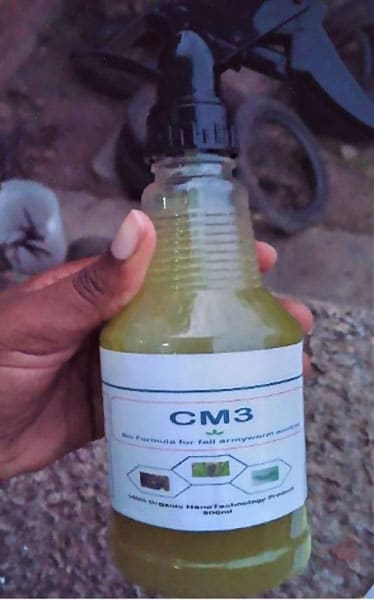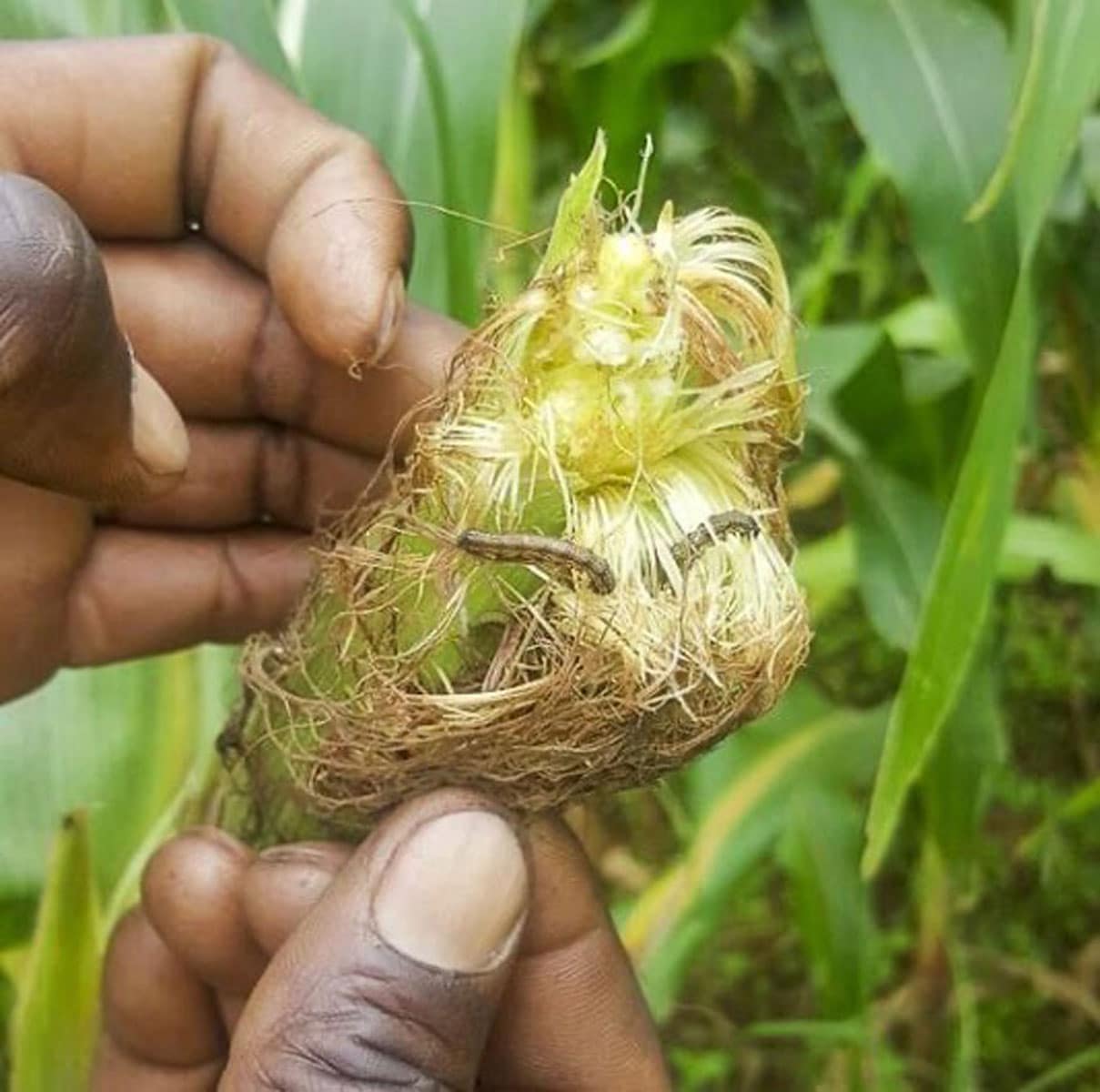The invasion continues, but innovative minds are plotting the next counterattack.
The attack in question is being carried out by the fall armyworm (S. frugiperda). This pest is the larvae of a moth that feeds on a wide variety of food crops, and it’s once again attacking crops in sub-Saharan Africa. The armyworm is so named for this species’ habit of devastating whole fields as a marching army might. There are many ways to fight back.
Constance Chingwaru, a Ph.D. candidate at Zimbabwe’s Bindura University of Science Education, thinks she’s identified a compound from a plant that could be synthesized to produce a powerful but ecologically friendly biopesticide to keep future armyworm invasions at bay.
“It’s still a work in progress,” Chingwaru admitted to us in an interview. But, she added, her initial research results are promising. “From our work with crude extracts, the results were quite astonishing as mortality of fall armyworm was evident and high in non-polar extracts.”
Finding the perfect weapon
Grow Further is inching closer to announcing our very first grants in support of research benefiting smallholder farmers. Of the more than 700 applications received, we narrowed the list down to 20 top candidates selected for peer review. Chingwaru and her partners made it to that top-20 list for their proposal to employ natural chemicals extracted from a native plant (she declined to tell us which plant) in the ongoing fight against fall armyworm. Their research is a good example of the kind of outside-the-box creative thinking and careful investigation that can have big benefits for smallholder farmers and food security.
Chingwaru is an entomologist studying how to exploit insects’ weaknesses to help protect the crops they might otherwise harm. She thinks she’s identified fall armyworm’s kryptonite: a native succulent known locally for its medicinal properties used to treat a variety of ailments, including headaches and diarrhea.
“The plant selected for my doctoral research is a succulent native to Africa and some parts of Asia,” she explained. “The plant contains several bioactive compounds that exert pesticidal effects on fall armyworm.” The goal is to isolate the most potent compounds contained in this miracle plant to use against fall armyworms. Next, she wants to figure out how to mass produce this natural chemical mixture and create an effective biopesticide that won’t harm farmers or crops but will prove deadly against this relentless pest. Chingwaru says she especially wants to protect maize crops as maize is a staple food in Zimbabwe and critical to that country’s food security.

“The results were quite astonishing as mortality of fall armyworm was evident and high in non-polar extracts.”
Identify, isolate, manufacture, and distribute
As Chingwaru indicated, it’s all still a work in progress. “Qualitative analysis of the crude extracts showed the presence of compounds such as flavonoids and alkaloids that are reported in the literature to harbor pesticidal effects,” she said. “We intend to further isolate and identify the effective bioactive compounds.” Once that important first step is achieved, she and her partners will explore the best ways to manufacture their new miracle biopesticide. They’re also devising a plan to distribute this new product once it’s developed. “The mass production of the biopesticide entails the identification and isolation of the active compounds from the crude extract,” she said. “This will be followed by the application of biotechnology techniques to allow the production of the desired compound in large quantities.”
Chingwaru’s proposed research project is ambitious. She tells us that she hopes to develop a safe and organic product that will one day improve the lives of some 300 million people on the African continent by helping farmers grow more maize cheaply and reliably, free from the ever-present fear of fall armyworm infestations.
Achieving that feat will take far more than just compound isolation, product development, and mass production. Chingwaru says she and her partners will elicit the help of agricultural extension workers to train farmers on how best to apply this proposed biopesticide to their crops to get ahead of armyworm invasions. “The most ideal way to mass-produce the biopesticide will be to establish an industrial plant that will be used for the production of the product,” she explained. “Our product will be organic and will be made from locally available raw materials.”
The devastating effects of fall armyworm may not be prevented entirely, but this enemy of food security can be controlled. Chingwaru’s vision deserves attention and support; it’s an innovative concept that hasn’t caught the attention of the major international organizations, but could one day win the backing of others interested in lending a hand in the war against fall armyworm.
— Grow Further
Photo credits: (a) Maize plant in Zimbabwe infected with fall armyworm. C. Thierfelder/CIMMYT (CC BY-NC-SA 2.0). (b) A prototype biopesticide tested against fall armyworm. Constance Chingwaru.




